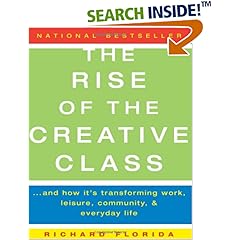 I don’t know what it is with some of the missional books being published these days, but their titles can be so out of touch and ambiguous (cf. Off-Road Disciplines, Creps). The Forgotten Ways: reactivating the missional church (subtitle is much better) is no exception to lousy titles, but the content is certainly thought provoking and generally summative of some missiological thought (McGavran, Walls, Bosch, etc).
I don’t know what it is with some of the missional books being published these days, but their titles can be so out of touch and ambiguous (cf. Off-Road Disciplines, Creps). The Forgotten Ways: reactivating the missional church (subtitle is much better) is no exception to lousy titles, but the content is certainly thought provoking and generally summative of some missiological thought (McGavran, Walls, Bosch, etc).
In Section one, Hirsch brings the reader into his own missional and not-so-missional story as missionary and church planter. At one point he claims to have planted 6 churches in 7 years, not all of them successful. Hirsch draws on his rich and varied experience as a church planter to critique recent models of church in the West. He concludes that in order to have a truly missional church one must possess Apostolic Genius (AG. another naming failure), which he describes as “something that belongs to the gospel itself and therefore to the whole people who live by it.”
AG is comprised of six components of missional DNA: 1) missional incarnational impulse 2) disciple making 3) communitas 4) organic systems 5) apostolic environment and, at the center 6) Jesus is Lord. The longest and Second section of the book is devoted to defining and describing just what and how this mDNA is and does.
I am currently finished with about a third of the book, so I will offer one critique and one praise before concluding this review in another post.
Praise: Hirsch creatively combines elements which appear to be essential to missional movements, while incorporating the frequently neglected theological center of mission: monotheistic christology (cf. Wright, Bauckham) or as Hirsch puts it christocentric monotheism.
Critique: Despite the incarnational component of his mDNA, Hirsch ends up baptizing the decentralized, “organic” modes of church and incorrectly oversimplifies the connections between the early church and the missional church. On page 64 he includes a chart that reflects his stated simplification, drawing tight parallels to the Apostolic church and the missional church of the past ten years. Two issues arise here: 1) the NT does not concretize any form of church, allowing for diverse expressions of church 2) the missional movement is only ten years old and it remains to be seen how much in common it will have with the early church.
Review Part II


